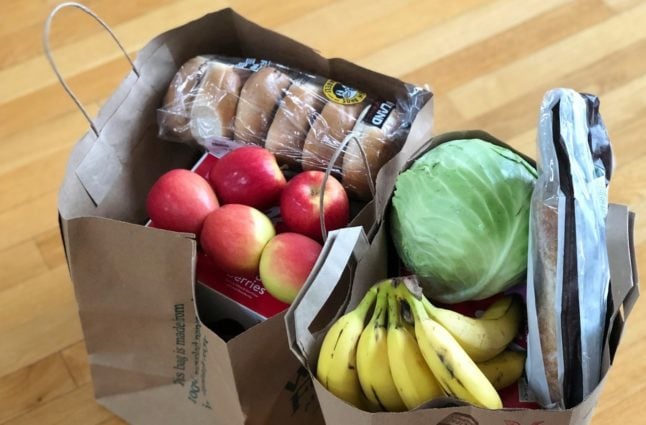Can third-country nationals settle in Switzerland?
It is very difficult for people from third countries to get a permit to work in Switzerland, much less to live here long-term.
Conditions for both are very tight.
But there are some circumstances under which non-EU / EFTA nationals are allowed to settle in Switzerland indefinitely — as long as all the conditions are met.
READ ALSO: Can a non-EU / EFTA citizen live permanently in Switzerland?
Are Swiss consumers splurging on gifts this holiday season?
If this holiday season is anything like last year’s, the Swiss are not going to skimp on their Christmas shopping. — regardless of inflation and other financial constraints.
While it is too early to say exactly how much will be spent on gifts, based on retail figures from Black Friday (November 24th), which is often seen as precursor to Christmas shopping, the season has started with a bang.
Swiss consumers spent 490 million francs in 24 hours — 10 million francs more than the previous year.
READ ALSO: Are the Swiss big spenders when it comes to Christmas presents?
Will some prices in Switzerland drop in 2024 ?
Some services, like health insurance, electricity, rents, and public transport, will become more expensive next year.
However, at the same time some prices will drop — bringing at least a bit of financial relief to money-strapped Swiss households.
READ ALSO: What will be cheaper and more expensive in Switzerland in 2024?
What’s ahead for Switzerland’s economy — and you — in 2024?
While it is difficult to issue accurate predictions for next year, experts agree that in at least some aspects, 2024 will be a relatively good year for Switzerland’s residents.
For instance, according to UBS bank, “economists expect high immigration, a robust labour market, and excess savings to support consumption in Switzerland in 2024.”
READ ALSO: What will happen to the Swiss economy in 2024?
Annual public transport subscriptions to become more expensive
From December 10th, when the new train timetable kicks off in Switzerland, the new (higher) tariffs will go into effect as well.
For the first time in seven years, the price of GA Travelcards — annual subscription that gives you unrestricted access to Swiss public railways, post buses, public boat services, as well as the urban local transport in buses and trams — will increase by about 4.3 percent, the national rail company, SBB announced.
READ ALSO: How the Swiss Travelcard will get more expensive
Is Geneva a safe city?
Generally yes, as is the whole of Switzerland.
Nevertheless, local residents will advise you to avoid three inner-city neighbourhoods if you want to avoid pickpockets and fights among rival motorcycle gangs — especially after dark.
READ ALSO: Are there any parts of Geneva you need to avoid?
Also in the news this week:
If you missed your rendez-vous with Saint Nicholas on December 6th, don’t worry — there are still plenty of holiday festivities taking place in Switzerland from now until Christmas.
You can still catch the Advent windows, and purchase the advent wreathe with candles.
READ ALSO: Three Swiss Christmas traditions you should know about



 Please whitelist us to continue reading.
Please whitelist us to continue reading.
Member comments